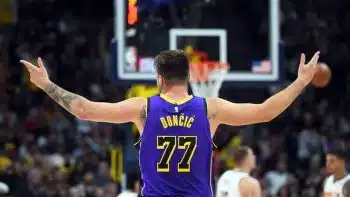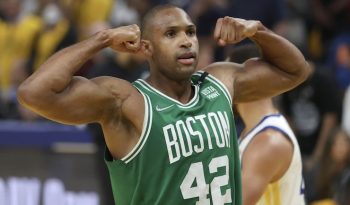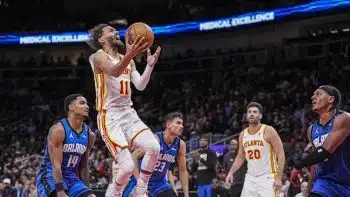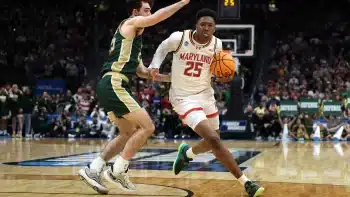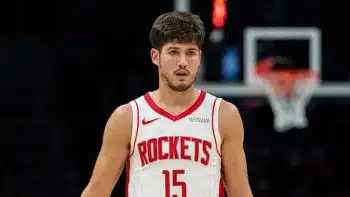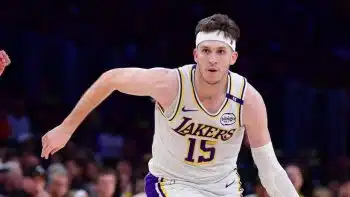NBA
NBA Daily: Does Blake Griffin Make the Nets Better?
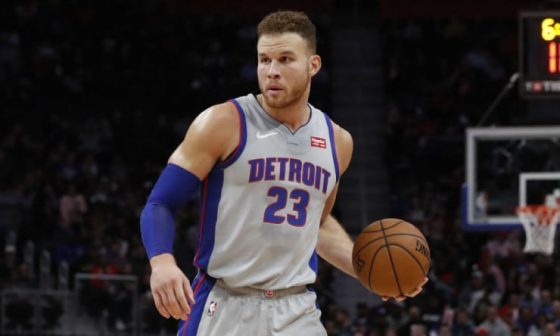
The union between Blake Griffin and the Detroit Pistons should have ended sooner. But, regardless of why Detroit hung onto him for so long, the two sides finally agreed to a buyout last week.
After clearing waivers, Griffin quickly announced his intentions of signing with the Brooklyn Nets, further fortifying what had already become the NBA’s next superteam.
In the short-term, the Griffin addition is a brilliant one for Brooklyn. In him, the Nets add a versatile and skilled power forward who, at the very least, can rebound the ball, initiate the offense and stretch the floor. They also avoid any long-term baggage; signed for the veteran-minimum, Brooklyn can take an extended look at Griffin and gauge his performance before committing to him beyond this season.
But as much as a long-term arrangement could set the Nets up for future success, the Griffin signing was about securing the franchise’s first championship in club history this season. So what does Griffin to the Nets really accomplish? What, if anything, does he add to an already star-studded roster?
First, the simplest way Griffin can benefit the Nets is by not playing for a competitor. For the NBA elite, the buyout market is their own personal buffet, with almost exclusive access to accomplished veterans that want to land with the squad that can give them the best chance to win a title. In signing Griffin, Brooklyn has already dealt a potential blow to the competition. Do they see something left in Griffin that the rest of the league doesn’t? Perhaps. But, for the minimum, adding Griffin was a no-brainer if only to ensure he couldn’t come to face them in the postseason.
Second, the Nets are in desperate need of size down low. Behind an over-the-hill DeAndre Jordan, Brooklyn sports Nicolas Claxton, Jeff Green, Kevin Durant and Reggie Perry — and neither Durant nor Green is the traditional, glass-cleaning big man.
Speaking of rebounding, the Nets are middle-of-the-pack in that regard, ranking 12th in rebounds per game. Griffin would seem to check that box, as his career 8.7 rebounds per game can atest. And, while he’s dipped a bit in the last two seasons, Griffin is still averaging six rebounds per-36 minutes this season. Looked at differently, Griffin’s 5.2 rebounds per game this season would be fourth-best on a Nets team whose current leading rebounder is their point guard, James Harden.
What’s more, Griffin is a savvy scorer and a six-time All-Star. He knows how to gets buckets. His game has evolved tremendously over the past few seasons, as Griffin has transitioned from a high-flyer into more a point-forward of sorts. And while that development was at least partially due to his declining athleticism, Griffin’s knack for scoring is something players don’t just lose. For the Nets, he should serve as another guy – bringing the team’s count up to four without Spencer Dinwiddie – that can get a bucket when it’s needed most.
So, in a vacuum, adding Griffin is a home run. But games aren’t played in a vacuum — and Griffin’s arrival may also present some challenges.
Firstly, he’s not a defender – and he’s never been one. To Griffin’s credit, he’s made up for a lot of bad habits over his career with athleticism. But, over the last two seasons and in line with his fading athleticism, Griffin’s defensive plus-minus, which estimates the defensive points per 100 possessions a player contributes above a league-average player, has fallen into negative territory. And, unfortunately for Brooklyn, defense is exactly what they need to improve, as they currently rank just 26th in defensive rating.
Further, Griffin is used to being featured on offense. While he may not have been the closer in his time with the Los Angeles Clippers, Griffin was their leading scorer every season he was with the team, despite various injuries. Even this season, Griffin attempted more than 11 field goals per game, despite connecting on just 36.5% of them. How might he adapt to a secondary role?
Griffin chose Brooklyn after watching Harden embrace a significantly different role to that which made him a star with the Houston Rockets. And, if he wanted big minutes, Griffin could have easily joined the Clippers, Portland Trail Blazers, or any of the other teams that were interested in his services. He knew he wasn’t walking into a starting role and he knew he’d be leveraged in new and interesting ways. Griffin joined Brooklyn anyway because of who they have and what they represent: the best chance he may have to win a title.
And that should provide all the information that’s needed. In joining Brooklyn, Griffin is either saying “I’m willing to sacrifice in order to win” or he’s badly misread the tea leaves.
Ultimately, Griffin is just the first of many buyouts expected to come in the next few weeks. Everyone, patiently or impatiently, is waiting for the other shoe to drop in anticipation of some roster construction clarity as teams begin to look toward the postseason.
But, regardless of who else is bought out or what other teams might do, Griffin should make the Nets better. We’ll start to see just how as early as Wednesday, when the Nets host the Boston Celtics in a potential playoff preview.
